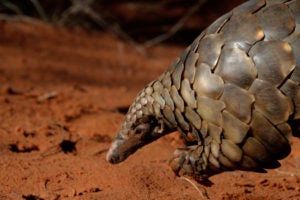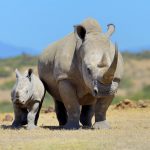
WASHINGTON— Wildlife conservation groups sued the Trump administration today to force officials to propose Endangered Species Act protections for critically imperiled pangolins.
Today’s lawsuit against the U.S. Fish and Wildlife Service notes that pangolins, which inhabit Asia and Africa, are in grave danger of extinction. A massive demand for their scales, erroneously believed to have curative properties in East Asian medicine, and their meat, consumed as a delicacy in some Asian countries, has fueled their decline.
“These odd, adorable animals may look like pinecones with legs, but the massive trafficking in pangolin parts is no joke,” said Sarah Uhlemann, international program director at the Center for Biological Diversity. “If poachers keep killing thousands of pangolins a week, they’ll disappear in decades. The Trump administration needs to help protect these unique creatures from exploitation and extinction.”
The world’s only mammal with scales, pangolins are also the world’s most trafficked mammals. Between 2004 and 2014, more than a million were illegally traded — an average of nearly 300 animals killed per day. Despite a 2016 ban on the international commercial trade in pangolin parts, several massive seizures in Singapore, Malaysia and China in 2019, representing tens of thousands of dead pangolins, show rampant illegal trade continues.
“The United States’ delay in listing these species belies its role as a leader in combating poaching worldwide,” said Adam Peyman, programs and operations manager for Humane Society International and co-author of the 2015 listing petition. “The U.S. market for pangolin products feeds poaching and trafficking in the countries where the animals are found. By giving all pangolin species the Endangered Species Act protection they desperately need, the Fish and Wildlife Service will have the tools it needs to stop U.S. trade in pangolin parts.”
While most illegally sourced pangolins are destined for markets in China and Vietnam, the United States also drives demand. At least 26,000 imports of pangolin products were seized in the United States between 2004 and 2013, and a 2015 report by Humane Society International found “medicinal” products containing or likely to contain pangolin parts openly for sale online and at U.S. stores.
“Pangolins cruelly suffer and die for their meat and the so-called medicinal properties of their scales. It is past time for the Fish and Wildlife Service to take action to prevent the illegal trade and eventual extinction of this species,” said Angela Grimes, CEO of Born Free USA.
One pangolin species, the Temminck’s ground pangolin, is already protected under the U.S. Endangered Species Act. In July 2015 wildlife groups petitioned the Fish and Wildlife Service to list the other seven pangolin species. The law required the Service to either propose protections or find protections “not warranted” by July 2016, more than three and a half years ago.
“The Trump administration should get with the program and do its part to save pangolins.” said Elly Pepper, deputy director of international wildlife conservation at the Natural Resources Defense Council (NRDC). “With scientists predicting the extinction of over one million species, the time for transformative change is now. We must rein in destructive consumption patterns like those decimating pangolins.”
Today’s suit was filed in U.S. District Court for the District of Columbia. If pangolins are protected as endangered, the law would prohibit the import and interstate sale of pangolin parts in the United States, except for scientific or other conservation purposes. Listing would also heighten global awareness about pangolins and their threats and make funding available for anti-trafficking and habitat conservation efforts.
Contacts:
- Nancy Hwa, Humane Society International, (202) 676-2337, Nhwa@hsi.org
- Rodi Rosensweig, the Humane Society of the United States, (203) 270-8929, RRosensweig@humansociety.org
- Sarah Uhlemann, Center for Biological Diversity, (206) 327-2344, suhlemann@biologicaldiversity.org
- Garrett Johnson, Born Free USA, (202) 368-6833, garrett@bornfreeusa.org
- Daniela Arellano, Natural Resources Defense Council, (310) 434-2304, darellano@nrdc.org


